目次
ドストエフスキーの隠れた名作『未成年』概要とあらすじ
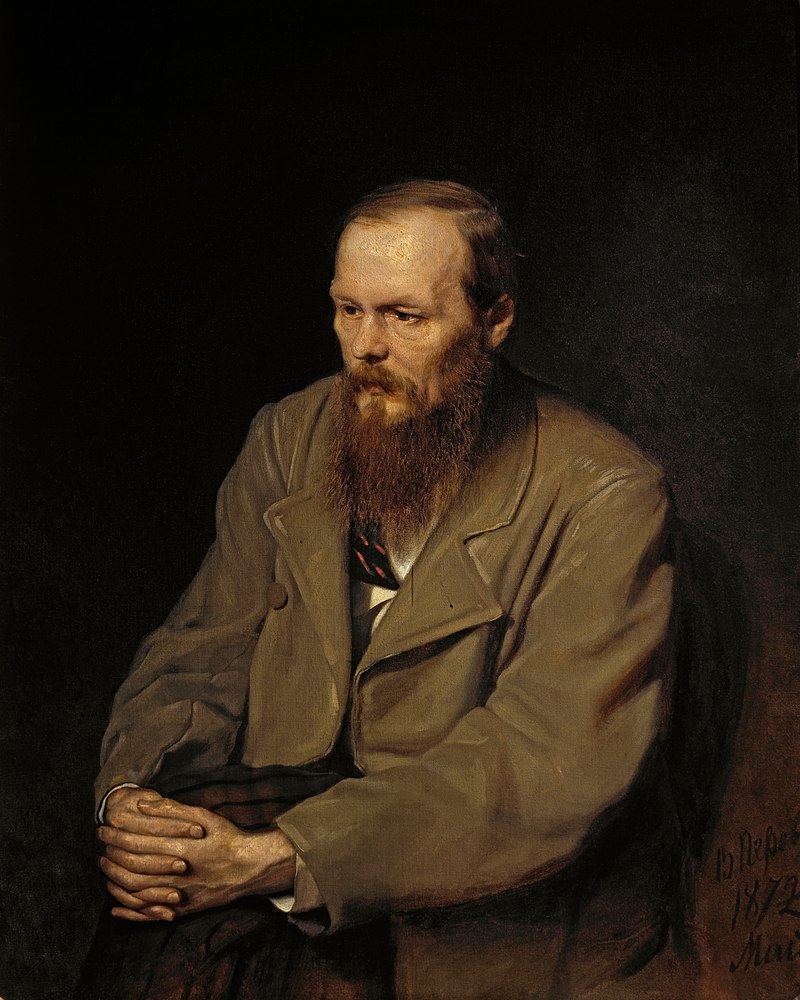 フョードル・ドストエフスキー(1821-1881)Wikipediaより
フョードル・ドストエフスキー(1821-1881)Wikipediaより
『未成年』は1875年に発表された長編小説です。
私が読んだのは新潮社出版の工藤精一郎訳の『未成年』です。
早速裏表紙のあらすじを見ていきましょう。
1870年代、古い制度と道徳が急激に崩れ去ったロシア。
この国を崩壊から救うものは何か、文豪はこの作品に答えを探ろうとした。
知識人の貴族ヴェルシーロフは、一家の主でありながら、「宿命の女性」アフマーコワへの情熱に駆られ破滅への道をひた走る。いっぽう彼と使用人の間に生れた私生児アルカージイは、日陰の生立ちのため世を憤り、富と権力を得ることを求めながら、父の愛を渇望する。ロシア社会の混乱を背景に、信仰と不信、地上的恋と天上的愛に引き裂かれる人間像を描くドストエフスキー円熟期の名作長編。
Amazon商品紹介ページより
この物語の主人公は貴族ヴェルシーロフとその使用人の間に生まれたアルカージイという私生児です。
アルカージイは私生児であるがゆえに、寄宿学校でもみじめな思いをし、心に深い傷を受けます。
そうした彼が青年へと成長し、この物語が始まっていきます。『未成年』はこの青年アルカージイの手記という形で書かれています。よって物語はすべてアルカージイ目線であり、世の中を知らない彼の目を通して読者の私たちも謎めいた世界を見ることになるのです。
下巻のあとがきにはこの作品の成立過程が次のようにまとめられています。
一八七一年七月、彼はパリ・コンミューンの荒れ狂うヨーロッパをあとにして、「西欧ではキリストは失われてしまっている、だから西欧は破滅するにちがいない……」と深い悲しみを抱いて帰国した。そして彼が見たのは、トルストイの言う「何もかもひっくりかえってしまった」ロシアであった。
当時のロシアは、農奴制度の廃止とこもに、社会を支えていた古い制度と道徳が急激に崩れ去り、資本主義の発達につれて、全般的な貧困化が急速に進み、新しい指導理念がないままに、国じゅうが混沌と無秩序の中に突き落とされていた。この「化学的に分解しつつある」ロシアを最終的崩壊から救うものは何か?ドストエフスキーはこれを『未成年に』さぐろうとした。
※一部改行しました
新潮社出版 工藤精一郎訳『未成年』下巻P614
1871年のパリ・コンミューンはおよそ20年続いたナポレオン3世のフランス第二帝政の崩壊直後の混乱期にあたります。そのあたりの顛末は以前紹介したエミール・ゾラの『壊滅』に詳しく描かれています。
あわせて読みたい
ゾラ『壊滅』あらすじと感想~フランス第二帝政を崩壊させた1870年普仏戦争を見事に活写! 戦争文学の...
今作は日本ではあまり知られてはいませんが戦争文学の金字塔と評価されている作品です。
ゾラ得意の五感を刺激する文章はまるで自分が間近で戦争を見ているかのような感覚にさせます。
ゾラはやはり芸術家です。読む者に恐るべきインスピレーション、イメージ、ショックを与えます。彼は単に世の中の相を写し取っただけではなく、それを芸術に昇華させています。
『壊滅』は叢書のクライマックスにふさわしい重厚な作品でした。戦争文学の傑作、金字塔という名声は疑いようもありません。素晴らしい作品でした。
この記事ではパリ・コミューンについては言及しませんでしたが、第二帝政の腐敗と1870年の普仏戦争、そこから現れたパリ・コミューンの悲惨な最後についてざっくりとではありますが紹介しています。
さて、ドストエフスキーはこの作品を通して、没落していくヨーロッパと、混乱を極めるロシアにおいてその救いとなるものはいかなるものかをこの作品で探究していきます。
感想
この作品をざっくりとまとめることは正直、とても難しいです。
なぜならこの作品はロシアの混沌を描いたものだからです。
その混沌の中を主人公のアルカージイはもがき苦しみながら突き進み、自分自身を見出そうとしていきます。
そしてさらに厄介なのはこのアルカージイ自身も混沌そのもので、混沌の中で確たるものを見つけられず右往左往と苦しんでいます。そのアルカージイ目線でこの物語は進んで行くのですからこの小説はずっと不確かな謎のまま進んでいくという何とも落ち着かない雰囲気を味わい続けることになります。
ですがそんなアルカージイですが、彼なりに心に秘めた理想があります。彼自身、その思いを次のように述べています。
わたしの理想、それは―ロスチャイルドになることである。わたしは読者諸君におちついて、まじめに聞いてもらいたいのである。
くりかえして言うが、わたしの理想、それは―ロスチャイルドになることである。ロスチャイルドのような富豪になることである。ただの金持ちになるのではなく、ロスチャイルドのようになることなのである。
新潮社 工藤精一郎訳『未成年』上巻P614
主人公アルカージイは私生児という生れに非常に強いコンプレックスを抱えています。そして寄宿学校での体験から彼の内面にはさらに深い傷が与えられます。
そんな彼が見出した理想、それがロスチャイルドでした。
金、それも圧倒的な金があればどんな人間もひれ伏す。ただの金持ちではだめです。ロスチャイルドでなければなりません。そこに彼のこだわりがあります。
『罪と罰』の主人公ラスコーリニコフはナポレオンにその理想を見出しましたが、今作ではロスチャイルドが思想上のテーマとして選ばれたのでありました。
なぜロスチャイルドがここで選ばれたのかと言いますと、ドストエフスキーはプーシキンの『吝嗇の騎士』という作品に強い影響を受けていたのでありました。
あわせて読みたい
プーシキン『吝嗇の騎士』あらすじと感想~ドストエフスキー『未成年』に強烈な影響を与えた傑作小悲劇
この作品はドストエフスキーと非常につながりの深い作品として有名です。
『吝嗇の騎士』は直接的には『未成年』に最も強い影響を与えた作品ですが、『罪と罰』や『カラマーゾフの兄弟』にも影響を与えていると考えるとまた興味深いです。
『吝嗇の騎士』とドストエフスキーのつながりについてその一つを紹介します。
一八七四年夏、ドストエフスキーは肺気腫治療のためにエムスへ出かけて行き、長篇小説のプランを練った。けれども作業ははかどらなかった。「いったいいつ小説を書けばいいのか」と、彼は妻にあてて書いている。「日中は、こんなにも明るく太陽が輝いて、散歩したい誘惑に駆られるし、町はざわめいている。どうか長篇に手がつけられればいいのだが。たとえわずかでも見当がつきさえすれば、手がつけられればということは、仕事の半分はできたということだからね」(一八七四年六月十五日づけ)。作品を執筆するかわりにプーシキンを読み、「夢中に」なっている(六月十六日づけ、妻あて)。彼は「吝嗇の騎士」の天才的なプロットに、あらためて驚嘆する。プーシキンの悲劇的な守銭奴の影響を受けて、自分の主人公―「ロスチャイルドのイデー」を持ったアルカージー・ドルゴルーキーを思いつく。
モチューリスキー『評伝ドストエフスキー』松下裕・松下恭子訳P528
こうしてドストエフスキー五大長編の一つ『未成年』は生まれたのです。このドイツのエムス滞在について私は2022年に実際にこの地を訪れ以下の記事を書きました。ドストエフスキーがどんな状況で『未成年』の構想を練っていたのかがきっと伝わるかと思います。
あわせて読みたい
(28)温泉地バート・エムスのドストエフスキーゆかりの地を訪ねて~結婚後10年経っても夫人に熱烈なラ...
私にとってバート・エムスはドストエフスキーのアンナ夫人への愛を感じられる象徴的な場所です。
結婚後10年経っても妻を熱愛したドストエフスキー。
彼はエムスからアンナ夫人に熱烈なラブレターを送り続けます。
あの『悪霊』を書いた文豪とは思えぬほどのデレデレぶりをぜひ皆さんにお目にかけたいと思います。
愛妻家としてのドストエフスキーを知るならここを超える場所はないのではないだろうかと私は感じています。
ドストエフスキーのかつての理想郷「ヨーロッパ」の没落と、ロシアの混沌。
そんな八方ふさがりの悲惨な状況の中で何が人々を救いうるのか。それをドストエフスキーは『未成年』という作品で読者に問いかけます。
そしてこの作品で提出された問題はその後ますます熟成し最後の大作『カラマーゾフの兄弟』へと組み込まれていきます。
つまり『カラマーゾフの兄弟』への萌芽をすでにこの作品の中に見出すことができるのです。そうした意味でもこの作品は興味深いものとなっています。
『悪霊』と『カラマーゾフの兄弟』という、あまりに巨大な作品に挟まれた『未成年』は五大長編の中でも影が薄い作品となってしまっていますが、思想的な意味では非常に重要なものを含んだ作品です。
ドストエフスキーの研究書でもこの作品は重要なものとして取り上げられることが多いです。それだけ文学的、思想的な価値がある作品と言うことができるでしょう。
以上、「『未成年』あらすじと感想~ドストエフスキーの隠れた名作!「私はロスチャイルドになりたいのだ」」でした。
Amazon商品ページはこちら↓
未成年(上) (新潮文庫)
次の記事はこちら
あわせて読みたい
ドストエフスキーの最高傑作『カラマーゾフの兄弟』あらすじと感想~神とは?人生とは?自由とは?
『カラマーゾフの兄弟』が発表されてから120年。これだけの月日が経っても変わらずに多くの人から愛され続けているのはそれなりの理由があります。
この物語が持つ魅力があるからこそ、読者に訴えかける何かがあるからこそ、こうして読み継がれているのだと思います。
『カラマーゾフの兄弟』はドストエフスキー作品の中でも私が最も好きな、そして思い入れのある作品です。
長編小説ということでなかなか手に取りにくい作品ではありますが、心の底からおすすめしたい作品です。
前の記事はこちら
あわせて読みたい
『作家の日記』あらすじと感想~ドストエフスキーの人となりを知るならこの作品!
『作家の日記』は子供たちや女性など、虐げられた人々に対しての優しいまなざしであふれています。
私自身、『作家の日記』を読むことで初めてドストエフスキーの人柄、優しいまなざしを感じたものでした。
ドストエフスキーの人となりを知るには最適の書です。
かなり分量がある作品ですが、ドストエフスキーに興味のある方にはぜひおすすめしたい作品です。
関連記事
あわせて読みたい
ドストエフスキーおすすめ作品7選!ロシア文学の面白さが詰まった珠玉の名作をご紹介!
ドストエフスキーといえば『罪と罰』や『カラマーゾフの兄弟』など文学界では知らぬ者のない名作を残した圧倒的巨人です。彼は人間心理の深層をえぐり出し、重厚で混沌とした世界を私達の前に開いてみせます。そして彼の独特な語り口とあくの強い個性的な人物達が織りなす物語には何とも言えない黒魔術的な魅力があります。私もその黒魔術に魅せられた一人です。
この記事ではそんなドストエフスキーのおすすめ作品や参考書を紹介していきます。またどの翻訳がおすすめか、何から読み始めるべきかなどのお役立ち情報もお話ししていきます。
あわせて読みたい
『ロシア正教古儀式派の歴史と文化』~ドストエフスキーは無神論者で革命家?ドストエフスキーへの誤解...
この記事では「ドストエフスキーは無神論者であり、革命思想を持った皇帝暗殺主義者だった」という説について考えていきます。
これは日本でもよく聞かれる話なのですが、これはソ連時代、ソ連のイデオロギー下で発表された論説が基になっていることが多いです。
この記事ではなぜそのようなことになっていったのかもお話ししていきます。
あわせて読みたい
横山三四郎『ロスチャイルド家』あらすじと感想~陰謀論ではないロスチャイルドの歴史を知るのにおすすめ!
ロスチャイルドといえばよく陰謀論が語られます。一概にそれらを否定するわけではありませんが世に出ているロスチャイルドの本や記事がほとんどが陰謀論的なものなのではないかというほどです。
ですがそんな中この本は陰謀論的ではなく歴史的にどのような過程を経てこの一族が力を得てきたかが語られる、とてもありがたい参考書となっています
あわせて読みたい
小針由紀隆『クロード・ロラン 一七世紀ローマと理想風景画』あらすじと感想~ドストエフスキーも愛した...
この本は17世紀以降のヨーロッパの絵画界に巨大な影響を与えた巨匠クロード・ロランの作品の魅力に迫る作品です
クロード・ロランは17世紀にイタリアで活躍した画家で、後のヨーロッパ美術界に決定的な影響を与えた存在です
クロード・ロランはドストエフスキーも好んでいた画家なので私個人としても彼のことを学べたのは非常に興味深かったです
あわせて読みたい
プーシキン『吝嗇の騎士』あらすじと感想~ドストエフスキー『未成年』に強烈な影響を与えた傑作小悲劇
この作品はドストエフスキーと非常につながりの深い作品として有名です。
『吝嗇の騎士』は直接的には『未成年』に最も強い影響を与えた作品ですが、『罪と罰』や『カラマーゾフの兄弟』にも影響を与えていると考えるとまた興味深いです。
あわせて読みたい
ドストエフスキー年表と作品一覧~ドストエフスキーの生涯をざっくりと
この記事ではドストエフスキー作品一覧と彼の生涯を簡潔にまとめた年表を掲載します。
ドストエフスキーの生涯は簡易的な年表では言い尽くせない波乱万丈なものです。特にアンナ夫人とのヨーロッパ外遊の頃は賭博に狂った壮絶な日々を送っています。
ドストエフスキー作品は彼の生涯とも密接な関係を持っています。彼の生涯を知ることは作品を知る上でも非常に大きな助けとなるのではないでしょうか。
あわせて読みたい
やはり『罪と罰』は面白い…!ナポレオンという切り口からその魅力を考える
私がドストエフスキーにおいて「面白い」という言葉を使う時は、アハハと笑うような「面白い」でもなく、あ~楽しかったいう「面白い」とも、スカッとするエンタメを見るような「面白い」とも違います。
時間を忘れてのめり込んでしまうような、それでいてなおかつ、読んだ後もずっと心にこびりつくような、そういう読後感があるような面白さを言います。
『罪と罰』にはそのような面白さをもたらしてくれる思想的な奥行きがこれでもかと描かれています。
そのひとつがラスコーリニコフの言うナポレオン思想です。
あわせて読みたい
ナポレオン三世のフランス第二帝政とドストエフスキーの意外なつながりとは
ナポレオン三世のフランス第二帝政期はドストエフスキーが初めて自分の目で見たフランスであり、この時代のフランスが後の世界のライフスタイルを決定づけていくという意味でも非常に重要な時代です。
この時代を知ることによって、ドストエフスキーが五大長編で何を言いたかったのかということがより明確になっていくのではないでしょうか。
あわせて読みたい
ドストエフスキー『悪霊』あらすじと感想~革命家達の陰惨な現実を暴露したドストエフスキーの代表作
この作品の持つ魔術的な力は計り知れません。
あくが強い人物たちが一つの舞台でぶつかり合い、自らの存在を主張し合います。
まさに「悪霊」に憑りつかれたごとく、悪役たちは巧妙にそして残酷に社会を混乱に陥れていきます。その過程があまりにリアルで、読んでいてお腹の辺りがグラグラ煮え立ってくるような感情が私の中に生まれてくるほどでした。
やがてそれは生きるか死ぬかの究極の思想対決へと進んで行き、一体これからどうなるのか、彼らの心の中で何が起こっているのかと一時も目が離せぬ展開となっていきます。
これは恐るべき作品です
あわせて読みたい
ドストエフスキー『白痴』あらすじと感想~あのトルストイも絶賛した名作!ドストエフスキーによるキリ...
「無条件に美しい人間」キリストを描くことを目指したこの作品ですが、キリスト教の知識がなくとも十分すぎるほど楽しむことができます。(もちろん、知っていた方がより深く味わうことができますが)
それほど小説として、芸術として優れた作品となっています。
『罪と罰』の影に隠れてあまり表には出てこない作品ですが、ドストエフスキーの代表作として非常に高い評価を受けている作品です。これは面白いです。私も強くおすすめします。
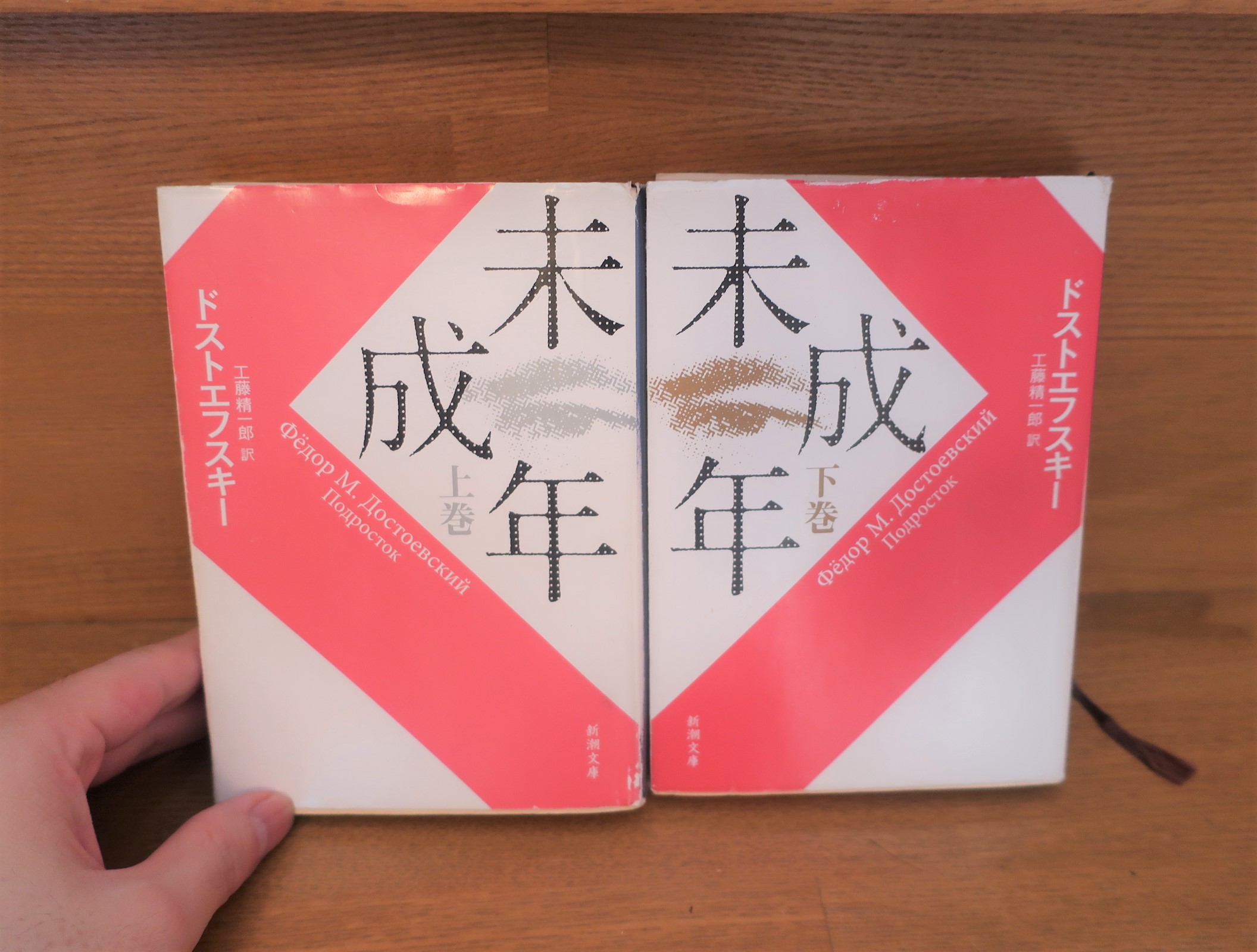

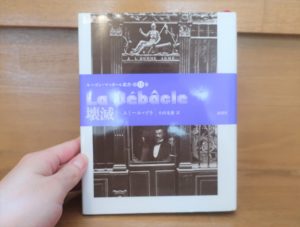

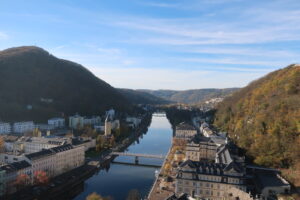





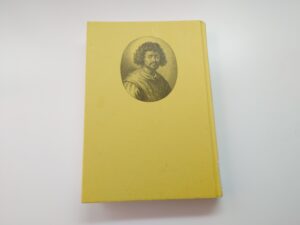

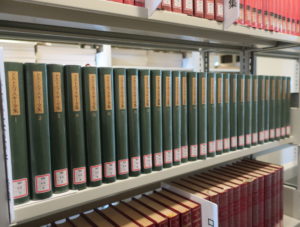






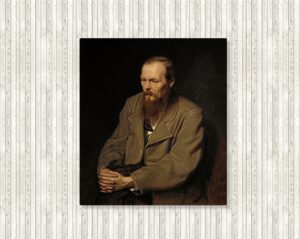
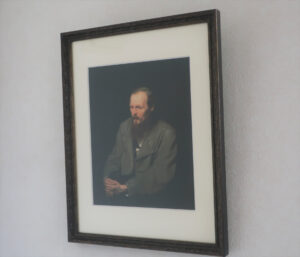

コメント